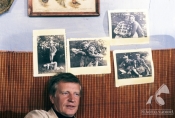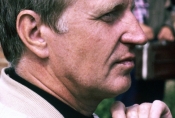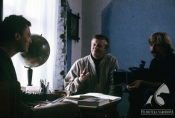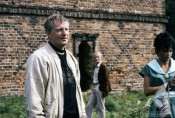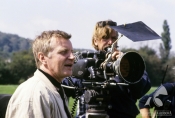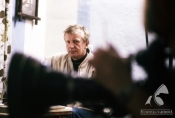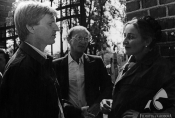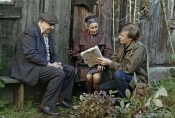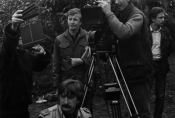Andrzej Barański
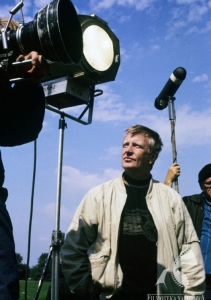
Film, theatre and television director, screenwriter. He was born on April 2, 1941, in Pinczów. Before film school, he studied at the University of Technology in Gliwice. A graduate of the Directing Department of the State Higher School of Film, Television and Theatre in Łódź (1973). While still a student at the technical university, he performed in student theatres and worked with the Student Poetry Theatre “Step”, which was supervised by Tadeusz Różewicz. Incidentally, the everyday life of avant-garde theatre students was the subject of his feature debut Free Time/Wolne chwile (1977).
His debut was a TV film At Home/W domu (1975), which won several awards, including Golden Screen (Złoty Ekran) and the best debut award in Gdansk; the film is an in-depth portrayal of a couple living in the provinces, for whom the sole purpose of life becomes the news they get from their son studying in the city. Most of Barański’s films are set in the provinces: two films were inspired by Waldemar Siemiński’s books – The Haunted/Niech cię odleci mara, set in the Stalinist era (1982, Warsaw Mermaid/Warszawska Syrenka award), and a poignant portrait of the eponymous 60-year-old Woman From The Province/Kobieta z prowincji (1984, Warsaw Mermaid and awards in Berlin and Gdansk), Peddler/Kramarz (1990), based on Edward Kozieł’s prose memoir, By the River Nowhere/Nad rzeką, której nie ma (1991, awards in Gdynia and Tarnów) – a poetic and nostalgic adaptation of the famous short story by Stanisław Czycz, or Principality/Księstwo (2011), inspired by the writings of Zdzisław Masternak. Particularly noteworthy are: Two Moons/Dwa księżyce, a visually stunning story executed with great panache which is set in the picturesque town of Kazimierz Dolny (1993, Warsaw Mermaid, Gold Ribbon), based on Maria Kuncewiczowa’s prose, and its polar opposite in terms of aesthetic, the ascetic yet powerful A Few People, a Little Time (2005, awards in Karlovy Vary and Gdynia) – a subtle story of the friendship and collaboration between a brilliant poet, Miron Białoszewski, and his blind secretary, Jadwiga Stańczak, author of the Diary For Two/Dziennik we dwoje, on which the film was based.
Andrzej Barański is probably the most versatile of our directors, because aside from feature films he also makes – with no less success – documentaries as well as educational and animated films. His documentaries are devoted mostly to art (Strumiłło, 1977, Second House/Drugi dom, 1978; In the Footsteps of Tadeusz Makowski/Śladami Tadeusza Makowskiego, 1981; Illusion In Art/Iluzja w sztuce, 1983; Transience/Przemijanie, 1985), and his animations, which are often a collage of photographs and film archive materials, dominated by pacifist themes (Construction/Konstrukcja, 1980; Soldier's Tale/Historia żołnierza, 1982; Cannon/Armata, 1984); also notable are his animations in which he incorporated works by Edward Dwurnik – Greengrocer, 360 Degrees/Warzywniak, 360 st (2006) and Oasis/Oaza (2009).
His honours include the Badge of Merit of the City of Łódź, awarded by the City Council for Excellence in Film (1998), Lifetime Achievement Award at the 7th International Film Festival “Vitae Valor” in Tarnów (2007), and the Silver Medal for Merit to Culture – Gloria Artis (2011).
Jerzy Armata
Selected filmography
-
1984
WOMAN FROM THE PROVINCES
-
1991
BY THE RIVER NOWHERE

